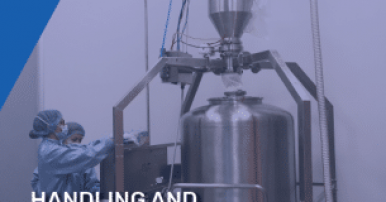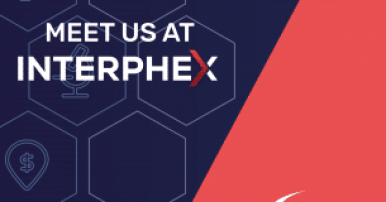It’s not easy to interpret technical jargon and lengthy specifications while on the hunt for an industrial vacuum system that complies with national and regional standards. That’s why Delfin is dedicated to demystifying the world of industrial vacuum systems on top of supplying high-quality products. We’re here to break down that confusing language and help you understand exactly what to look for before you make a purchase.
Today, we’re walking through the Occupational Safety and Health Administration’s NRTL program—what it is, how it helps to ensure a safe work environment, and what it means for your industrial vacuum system.
What Does NRTL Mean?
You’ve likely come across the phrase “certified” or “NRTL-certified” while exploring your industrial vacuum system options. The acronym refers to OSHA’s Nationally Recognized Testing Laboratory program, which allows certain third-party organizations to perform product safety tests. OSHA regularly audits these organizations to ensure that they remain qualified to conduct tests.
When a product passes this kind of test, the manufacturer is permitted to apply a registered certification mark. This signifies that the product meets OSHA’s electrical safety standards. A wide range of materials and equipment require NRTL certification for use in the workplace, including automatic sprinklers, hoisting machines, and ventilation systems.
It’s worth noting that this certification is exclusive to North America. The European Union follows the ATEX directives, which prescribe similar standards of safety testing for equipment meant to be used in hazardous locations. While an ATEX certification can’t be used in place of an NRTL certification, it still signifies that the product in question has passed through an extensive testing process.
Does OSHA Issue Industrial Vacuum Certifications?
It’s crucial to understand that only an NRTL can certify a vacuum system for use in hazardous locations. OSHA and the NFPA are not certification authorities, meaning that there’s no such thing as an NFPA or OSHA-certified industrial vacuum. These machines can only be deemed “compliant” to organization standards.
So if you see a system described as an “OSHA vacuum,” don’t be too quick to invest your hard-earned funds. Instead, dig a little deeper and search for concrete evidence that this industrial vacuum is NRTL certified. That should come in the form of a registered certification mark applied by the manufacturer. Each NRTL has a different mark, and most of them don’t actually include the acronym.
What about OSHA and NFPA compliance? What does that entail?
For an industrial vacuum system to be compliant to NFPA and OSHA standards, and therefore appropriate for use with combustible dust, it must feature the following:
- Complete earth grounding
- Correctly-bonded conductive accessories
- A fan protected from dust particles
- Antistatic filters
- No paper filter
- Parts that meet dust type and environment-specific criteria
Do You Need an NRTL-Certified Industrial Vacuum?
We’ve arrived at the essential question for health and safety managers everywhere: do you absolutely have to have an NRTL-certified vacuum system? If your facility produces or handles combustible dust, the answer is a resounding yes. Explosion-proof vacuums play a key role in combustible dust collection and management programs. While unsafe electrical equipment can actually cause explosions, an NRTL-certified vacuum system will allow you to mitigate the risk of an accident, keeping your employees and facilities safe.
If you’re working in a non-rated environment that doesn’t involve handling a combustible dust, you may choose an ordinary location vacuum system. These systems are safe for use in non-hazardous locations where there is no risk of explosion, but they do still need to comply with any applicable OSHA safety standards.
Pneumatic Vacuums
Pneumatic vacuums are somewhat of an exception to the rule. Because there is currently no certification process in the U.S. for pneumatic equipment, you won’t find an NRTL-certified pneumatic vacuum system, no matter how hard you look. However, there are air-powered vacuums out there that are appropriate for use in hazardous environments. Delfin’s pneumatic vacuum systems, for example, are both NFPA compliant and ATEX certified.
Finding the Right Explosion-Proof Industrial Vacuum System
Ultimately, whether or not you need an NRTL-certified vacuum will depend on the environment and the product that you’re collecting. That still leaves quite a bit of ground to be covered, though. What type of explosion-proof vacuum will increase productivity in your facility? Should you choose a portable or fixed system? Do you need a single or three-phase model?
We’re here to help you identify the industrial vacuum system that best fits your needs, whatever they may be. Delfin is proud to offer a wide range of products, from portable systems to wet/dry vacuums, electric to pneumatic, and more. Reach out today to learn more about how we can help.




